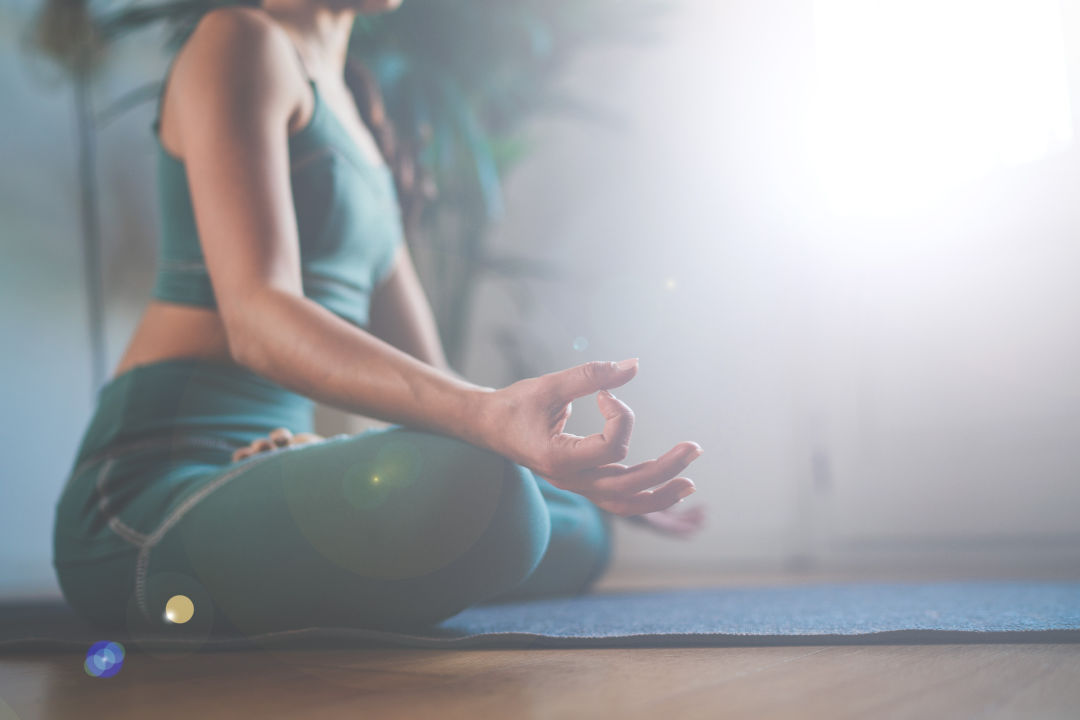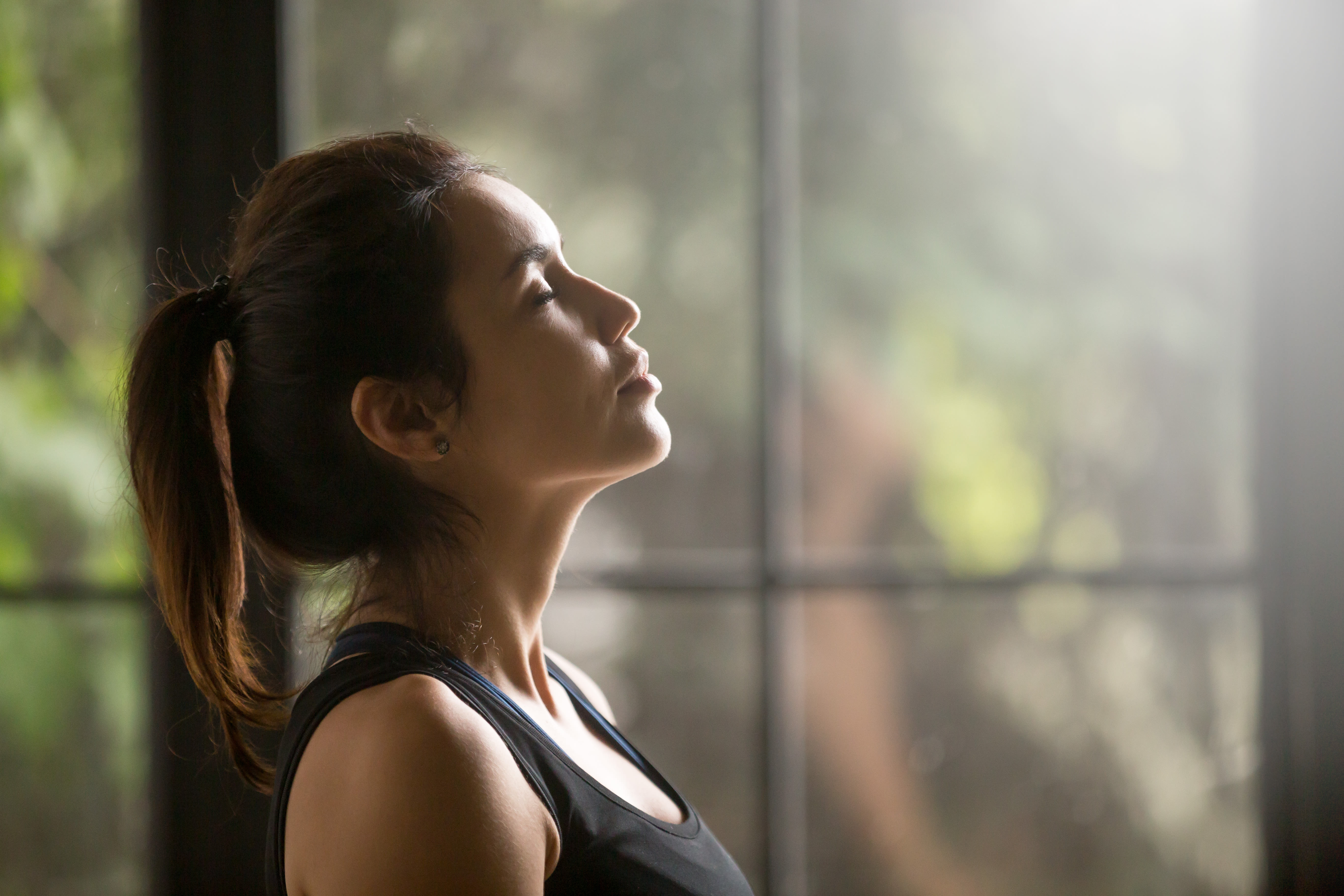How Meditation Can Help You Deal With Stressful Events

Image: ImYanis/Shutterstock.com
Many people consider meditation just another task to cross off their to-do list while they go about their busy lives. But that misses the point of the practice, which is to release tension to create a calm mind. The truth is, you can practice meditation—also known as being mindful, or being aware—at any time, wherever you are. And it can become especially helpful in the aftermath of challenging situations such as Hurricane Ian.
You can begin meditation at any age, and you can engage in mindfulness without a phone, app, studio or formal practice, though those aids help. Meditation can be done in a few moments while sitting at a traffic light, in line for a cup of coffee or while walking on one of Sarasota's beautiful beaches as your feet feel the sand. Looking deeply into nature (from the birds to the trees to the sun hitting a plant or body of water), we can help the mind calm or settle down.
Every meditation instructor with whom I’ve spoken has said you don’t need to carve out any time in your schedule for meditation. Instead, you can incorporate it into what you’re already doing, particularly if you’re in a state of tension or if you have a lot going on in your life. You may practice mindfulness while on the go, at work or sipping tea at home. You may sit next to a tree with a journal, listen to the birds or close your eyes.
But meditation isn't a magic bullet or a quick fix promising happiness. Like any worthwhile pursuit, it's a long-term process that requires patience.
Meditation fosters a sense of awareness, and its benefits are hard to overstate: It will help you build skills to manage stress; reduce negative emotions; increase imagination, creativity, patience and tolerance; and manage unhealthy habits, according to the Mayo Clinic. Decades of research on the health effects of meditation show that our body’s response to meditation helps decrease metabolism, lower blood pressure, improve memory and focus, ease chronic pain and improve heart rate. Brain scans in people meditating show an increase in activity in the areas that control metabolism and heart rate, which explains why many people find meditation helpful in easing stressful situations.
During stressful times, I try to remind myself to watch the clouds and see how they move throughout the day. At night, you can stargaze, noticing the moon, planets and visible stars, while zooming out to realize how gigantic the universe is.
Thich Nhat Hanh, the late spiritual teacher and peace activist, became a Buddhist monk at 16. He helped bring the mindfulness movement from Vietnam to Western culture, and I’ve read some of his books, which include meditations. Here are a few of his meditations you can begin today, wherever you are:
- Sitting meditation: Sit, relax your muscles and bring awareness to various body parts. Feel the abdomen gently rise and fall with each in-and-out breath. If your mind wanders, that's OK, and normal. Meditation experts say the best action is to bring your thoughts back to your breath, without judgment.
- Walking meditation: Walking in a relaxed, peaceful manner, free of hurry or cell phones, can heal the body and mind, even if done for only a few minutes between meetings or other obligations. Sometimes, when we walk, our mind is fixated on our to-do list or worries, and we aren't aware of our walking. Meditation teachers remind us: We are putting our feet on something precious—Earth. You can engage in this practice between offices, from room to room, or between the car and the house. Each step is an opportunity to use mindful walking to slow down and heighten your sense of being.
- Weightlifting meditation: Weightlifting is a form of meditation, too. Use your muscles not as an exercise in arrogance or self-indulgence, but as an expression of gratitude for your many body parts working in tandem to keep you going.
- Eyelid meditation: Gently close your eyes, even if for only a few seconds, and feel yourself giving your eyes a break. You may touch your eyelids and savor the gift of a brief pause, compassion for yourself and relaxation.
A family friend introduced me to mindfulness about a decade ago, and I didn't fully invest in learning more about it until the last few years. The small steps listed above have helped me tremendously, particularly in mitigating anxiety, stress and worry. Sometimes, you're stuck in a rut, and it feels as though there's no way out. Meditation might not leave you feeling your best all of the time, but it helps cultivate a sense of peace and stillness, qualities helpful to any pursuit.
Want to learn more? Sarasota’s Kadampa Meditation Center offers classes, retreats and volunteer opportunities for in-person meditation. Local libraries have books about how to incorporate meditation into your routine, and even YouTube offers plenty of free guided meditations. Find what works for you, and practice peace as long as you may need.



